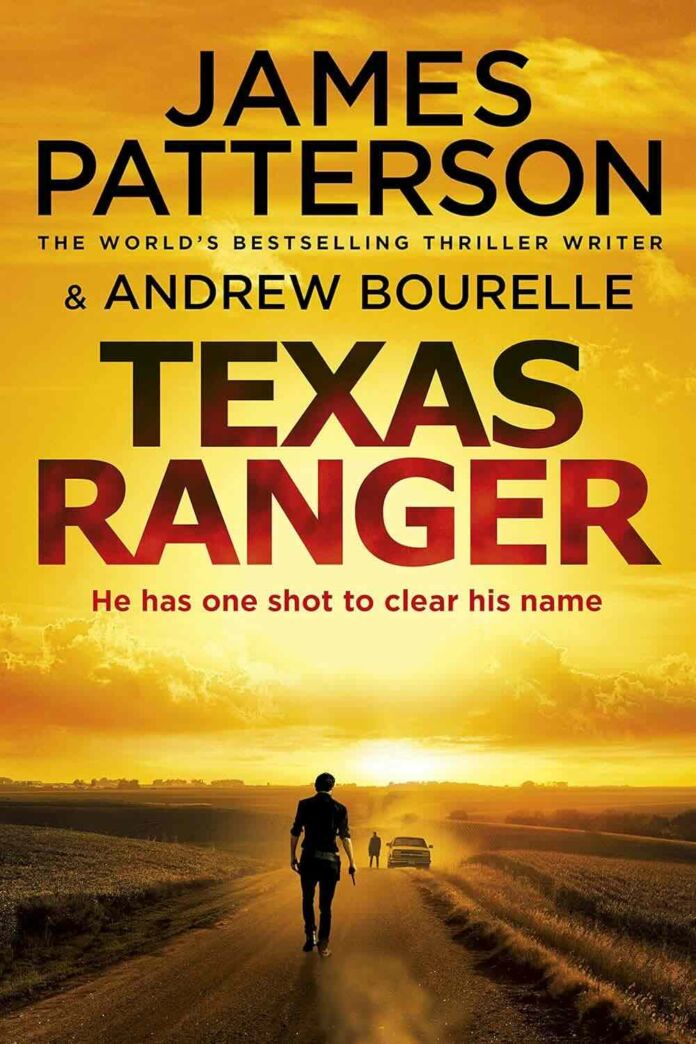James Patterson, in collaboration with Andrew Bourelle, delivers a pulse-pounding thriller, Texas Ranger, that seamlessly blends elements of classic Western storytelling with contemporary crime fiction. Texas Ranger, the first installment in what would become the Texas Ranger series, introduces readers to Rory Yates, a dedicated lawman whose unwavering commitment to justice leads him down a treacherous path of personal and professional crisis.
Plot Synopsis and Analysis
The story centers on Rory Yates, a Texas Ranger whose career hangs by a thread following a controversial shooting in Waco. When he returns to his hometown of Redbud to decompress, he finds himself thrust into a nightmare—his ex-wife Anne has been murdered, and he’s the prime suspect. What follows is a masterfully crafted narrative that weaves together multiple storylines: the hunt for Anne’s killer, Yates’s struggle to clear his name, and his growing attraction to Willow Dawes, a talented singer at the local roadhouse.
Patterson and Bourelle excel at maintaining tension throughout the novel. The pacing is relentless, with each chapter ending on a note that compels readers to keep turning pages. The authors demonstrate particular skill in their portrayal of small-town Texas life, where everyone knows everyone else’s business, and secrets have a way of surfacing at the most inopportune moments.
Character Development and Relationships
One of the novel’s greatest strengths lies in its character development. Rory Yates emerges as a complex protagonist—skilled and dedicated to his profession, yet haunted by past failures both personal and professional. His relationship with Anne, explored through flashbacks and memories, adds depth to both characters and provides crucial context for the present-day investigation.
The supporting cast is equally well-drawn. Willow Dawes brings a fresh energy to the story, while Sara Beth and Patty represent different aspects of Yates’s past. The antagonist, when finally revealed, proves to be both shocking and believable—a testament to the authors’ ability to plant subtle clues while maintaining suspense.
Writing Style and Narrative Technique
Patterson’s trademark short chapters and crisp dialogue are present throughout, but Bourelle’s influence can be felt in the richly detailed descriptions of Texas landscapes and culture. The prose strikes an effective balance between efficiency and atmosphere, never getting bogged down in unnecessary detail while still painting a vivid picture of the setting.
Series Context
Texas Ranger sets the foundation for what would become a successful series by James Patterson, followed by Texas Outlaw and The Texas Murders. While each book stands alone, together they form a compelling arc that follows Yates’s evolution as both a lawman and a person. The first book establishes many of the themes that would be explored throughout the series: justice, loyalty, and the price of wearing the badge.
Critical Analysis
Strengths
- Masterful pacing and plot construction
- Authentic portrayal of Texas law enforcement culture
- Complex, well-developed characters
- Effective blend of mystery and action elements
Areas for Improvement
- Some plot points rely heavily on coincidence
- Secondary character motivations could be more fully explored
- The romantic subplot occasionally feels rushed
Impact and Legacy
The success of Texas Ranger led to two more books in the series, establishing Patterson and Bourelle as skilled chroniclers of modern Western law enforcement. The book’s popularity helped revive interest in the Western thriller genre while introducing contemporary elements that appeal to modern readers.
Comparison to Similar Works
While Texas Ranger by James Patterson shares DNA with works like C.J. Box’s Joe Pickett series and Craig Johnson’s Longmire novels, it carves out its own unique territory. The book feels fresher and more contemporary than traditional Westerns while maintaining respect for the genre’s conventions.
Final Verdict
Texas Ranger is a compelling blend of Western, thriller, and police procedural that succeeds on multiple levels. Despite some minor flaws, the book delivers exactly what readers want: a fast-paced, engaging story with memorable characters and genuine emotional stakes. Through strong execution of its core elements, James Patterson and Andrew Bourelle set up a promising series.
Recommendation
This book is highly recommended for fans of:
- Modern Western thrillers
- Police procedurals
- Small-town mysteries
- James Patterson’s other works
The novel will particularly appeal to readers who enjoy complex law enforcement characters and authentic portrayals of contemporary Texas life.
A Note on the Series
The Texas Ranger series by James Patterson continues with Texas Outlaw and The Texas Murders, each building on the foundation established in this first installment while exploring new territory. Readers who enjoy Texas Ranger will find much to appreciate in the subsequent books, which maintain the high standards of suspense and characterization while expanding Yates’s world and challenges.
Texas Ranger stands as a testament to James Patterson and Andrew Bourelle’s storytelling abilities and their understanding of what makes a modern Western thriller work. It’s a worthy addition to the genre and an excellent starting point for readers interested in contemporary law enforcement fiction with a distinctive Texas flavor.





